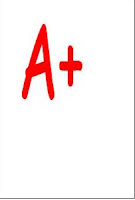Observing the Little Things
The topic for Day 3 of the +TeachThought blogging challenge is observations. As the Associate Principal, observations are ideally what I spend the majority of my time on. Of course we know that reality is very different from the ideal so sadly I do not get into as many classrooms every week as I would like. Regardless, I want to make the time that I do spend in the classroom as effective as possible.
I have an app that I use for my walk-throughs (though I am thinking about changing apps so if you have a format that you really like, please share!) which allows me to capture a fairly accurate snapshot of what is going on in the classroom according to the standards. What I have discovered, though, is that it isn't the check-list, but rather the free-form comments and the conversations that I have after I have been in a classroom that have the biggest impact.
So in order for me to provide effective feedback and engage in meaningful conversation about teaching practice, I need to pay attention to the little things, not just what is on the check list. If I am in your classroom for 10 minutes one day and don't get back again for almost two weeks, how can I expect to give you meaningful feedback unless I actually talk to you about what came before and after my time in your classroom?
Thus, to answer today's question, I want to spend less time on the checklist and more time in meaningful conversations with teachers and students about how the learning is happening rather than what is being learned. I really don't care if you covered math standard 2.3 today, but I do care if I see engaged learners (and I include the teachers in that category) working together to solve new problems and expand their knowledge base. I do care if I see the confidence level rise in the room as new solutions are tried...and as some fail. I do care if as a community I see the boundaries being pushed in different ways. At the end of the day ( as I said yesterday), it isn't about what you learned but about how you learned because in order to be a life-long learner you need to be able to think, curate, discriminate, curate and engage. You do not need to be able to memorize searchable information.
My observation area that I want to work on this year is watching for the little indicators (and big) that tell me the school community is a vibrant, active learning hub where we are all able to engage in and observe learning.
I have an app that I use for my walk-throughs (though I am thinking about changing apps so if you have a format that you really like, please share!) which allows me to capture a fairly accurate snapshot of what is going on in the classroom according to the standards. What I have discovered, though, is that it isn't the check-list, but rather the free-form comments and the conversations that I have after I have been in a classroom that have the biggest impact.
So in order for me to provide effective feedback and engage in meaningful conversation about teaching practice, I need to pay attention to the little things, not just what is on the check list. If I am in your classroom for 10 minutes one day and don't get back again for almost two weeks, how can I expect to give you meaningful feedback unless I actually talk to you about what came before and after my time in your classroom?
 |
| https://www.flickr.com/photos/langwitches/3557894144/ |
My observation area that I want to work on this year is watching for the little indicators (and big) that tell me the school community is a vibrant, active learning hub where we are all able to engage in and observe learning.



Comments
Post a Comment
Thanks for sharing your thoughts!